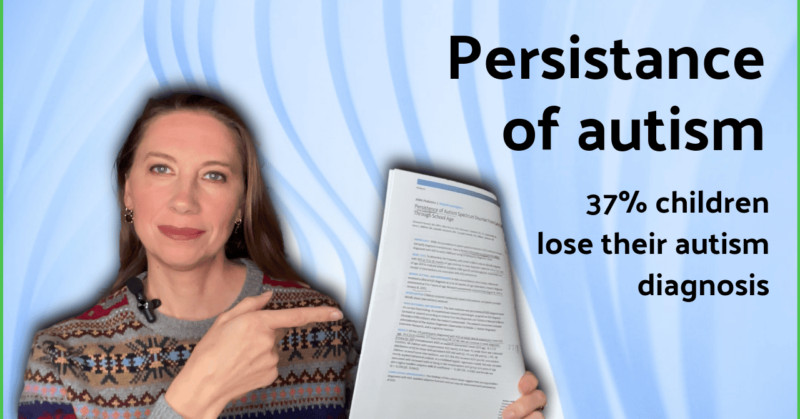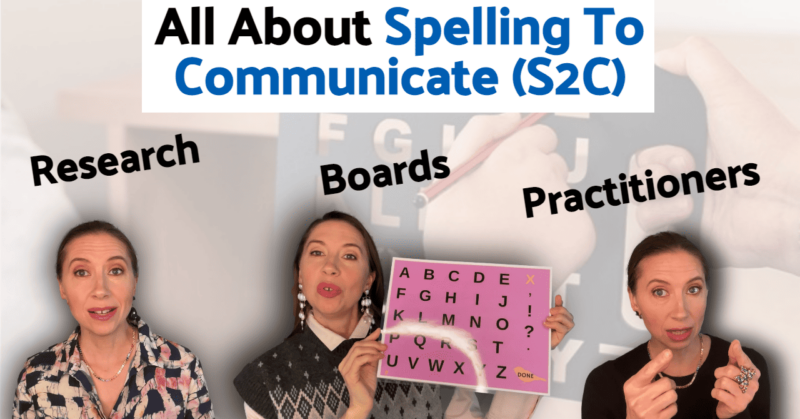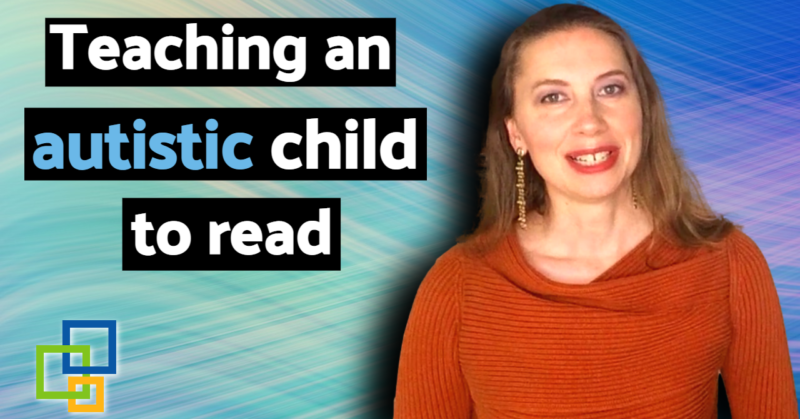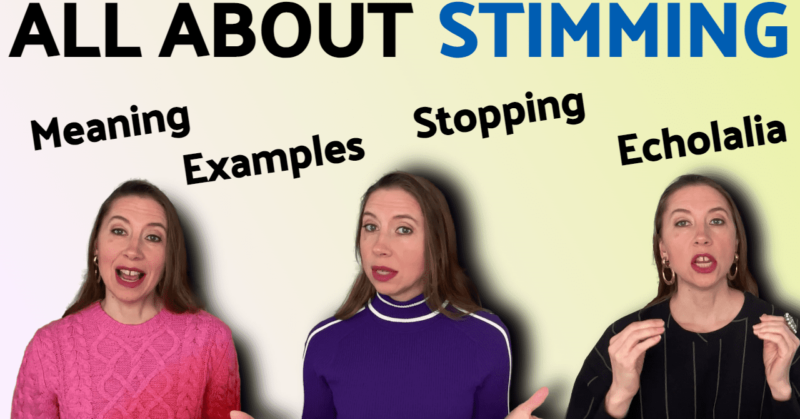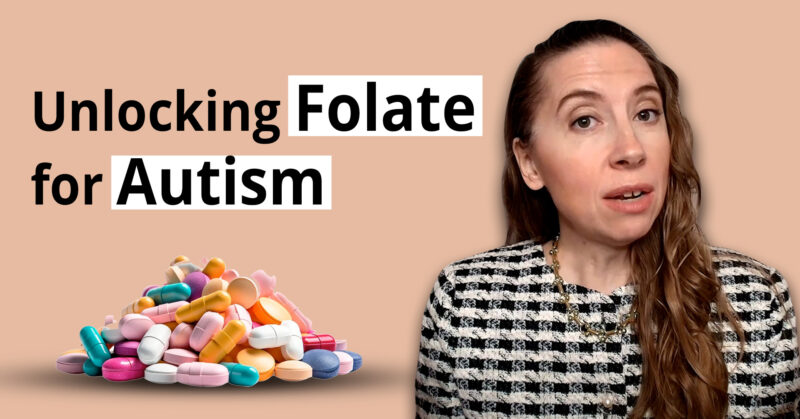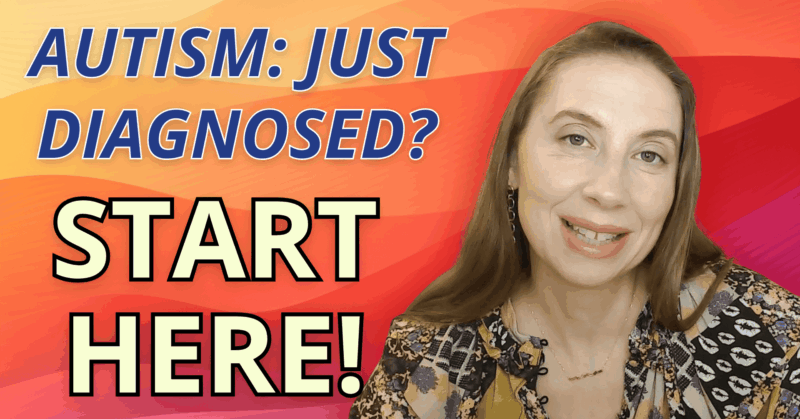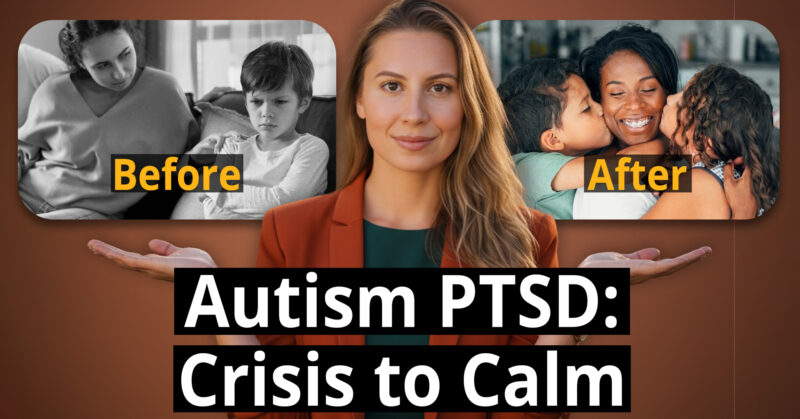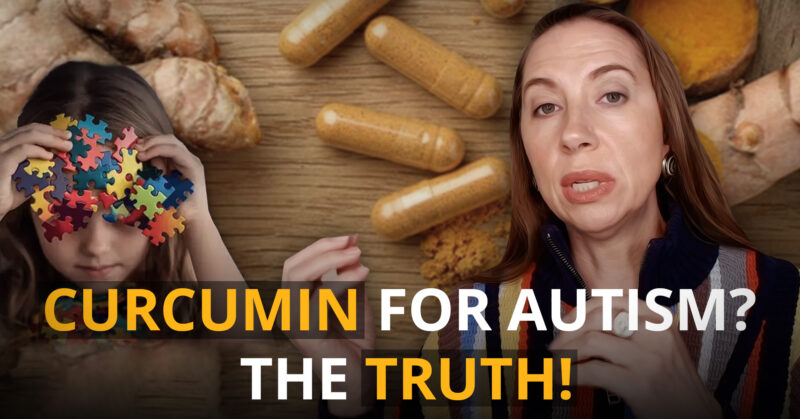Evidence-Based Autism Resources for Parents
Topics we’ll cover: The new October 2023 study The latest autism research study found that 37% of children with autism lost their diagnosis! Wow! That’s profound, right? Let’s learn the science in this study. Losing the autism diagnosis is a controversial topic. Please note, that I am not expressing any opinions here. I’m guiding you […]
Topics we’ll cover: Spelling to Communicate – New Research What does this card in the video below symbolize? Freedom!! Looks like a simple piece of paper right? It is so much more. This is what is used by people who communicate through something called spelling to communicate but many times it’s abbreviated as S2C. A […]
Scientists don’t have all the answers all the time. Our bodies are so complex that it’s a fallacy to think that we know how our bodies fully operate. We don’t. And when we have wrong information, we can make really bad decisions because we didn’t understand the entire situation. This is happening in the scientific […]
Yes, even if speaking is an issue, your child can still learn to read! Let me go over the basic steps in learning to read. Pre-Reading Skills You have pre-reading skills and that’s awareness of print words. Most children with autism have this in great strength. This is when your child knows what brand of […]
Ever go to a party and see other children, then get mad that your child seems like they’re so behind? It doesn’t stop there, right? Then you start thinking about the next decade or two, projecting more difficulty into the future. And then depression sets in – anger, despair, exhaustion, frustration right? Let me share […]
Stimming meaning (or stimming definition): Stimming is short for self-stimulatory behavior. It refers to repetitive movements, sounds, or actions—like hand-flapping, rocking, finger-flicking, or repeating words. Stimming is common in autism, but non-autistic people also stim. It can help manage emotions, reduce stress, or handle overwhelming sensory input. Stimming Meaning (Definition) What does it mean when […]
Leucovorin vs methylfolate explained: learn how folate reaches the brain, why FRAT testing matters in autism, and how choosing the right folate form can support brain function and development.
Discover how the MUSE EEG headband boosts calm, improves sleep, and supports nervous-system regulation. Learn how neurofeedback works, real results, meditation benefits, and how parents can use MUSE for emotional regulation and focus.
Just received an autism diagnosis? Discover a clear, science-based 30-day roadmap for parents—understand autism, get organized, set priorities, build your support team, and move forward with clarity, confidence, and hope.
Olly Kids Gummies taste great, but are they safe for kids with autism? Discover ingredient concerns, missing nutrients, and why this multivitamin earns a total “drop” in our review.
New 2025 autism parents PTSD EMDR research shows therapy reduces trauma, improves emotional regulation, and supports family wellbeing. Discover how EMDR helps parents of autistic teens heal and restore calm.
Enhansa review: discover how this high-absorption curcumin supports inflammation, detox, and brain health in autism. Learn about its bioavailability, dosage tips, powder vs capsule forms, and real-world parent experiences.
Euromega-3 review: discover how this unique salmon-derived fish oil helps support autism, brain health, and omega-3 balance. Easier to swallow, naturally extracted, DHA-rich, and ideal for kids with picky eating challenges.
Harvard research reveals even safe air pollution levels may raise autism risk. Learn how PM2.5 exposure during pregnancy and early childhood affects brain development and practical ways parents can reduce it.
StemRegen and stem cells in autism: honest review, personal results, protocol science, benefits, costs, and what parents should know before considering stem cell supplements or transplants for autism recovery.
Smarty Pants Kids Multi & Omegas review for autism parents. Discover what’s inside, what’s missing, omega-3 concerns, mineral gaps, gummy dental issues, and whether this supplement is worth it.
